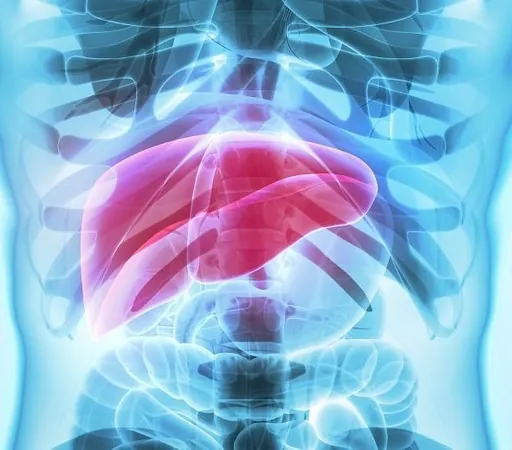
Shocking Link Identified Between Liver Disease and Inflammatory Bowel Disease—Are You at Risk?
2025-01-23
Author: Yu
Research Overview
Recent research has unveiled a concerning connection between metabolic dysfunction-associated steatotic liver disease (MASLD) and inflammatory bowel disease (IBD), heightening the already significant long-term risks for individuals affected by these conditions. The study, which utilized data from the extensive UK Biobank, found that individuals diagnosed with MASLD face an increased likelihood of developing IBD, which encompasses ulcerative colitis (UC) and Crohn’s disease (CD).
Prevalence of MASLD
This alarming finding is particularly noteworthy given that over 30% of the global population is estimated to be affected by MASLD, previously referred to as nonalcoholic fatty liver disease (NAFLD). Unfortunately, data on how different factors related to MASLD and its correlation with IBD have been sparse—until now!
Study Population
The research scrutinized a staggering 403,520 participants, all free from cancer, IBD, alcohol-related liver disease, or hepatitis B/C virus. The presence of MASLD was defined using a fatty liver index (FLI) of 60 or higher, alongside at least one cardiometabolic risk factor, which can include concerns such as being overweight or obese, having elevated blood sugar levels, hypertension, and abnormal cholesterol levels.
Findings and Risks
In a groundbreaking approach, researchers further divided the MASLD group into those with pure MASLD—characterized by little to no alcohol intake—and those designated as having metabolic dysfunction-associated steatotic liver disease with increased alcohol intake (MetALD). Tracking participants over a median period of 13 years, the findings were startling. A total of 2,398 IBD cases emerged, revealing incidence rates of IBD, UC, and CD at 45.8, 32.8, and 15.9 cases per 100,000 person-years, respectively. Strikingly, individuals with MASLD were found to have a 39% increased risk of developing IBD compared to their peers without the condition. This risk escalated significantly along with additional cardiometabolic risk factors, emphasizing a chilling trend: the more risk factors present, the higher the chances of developing IBD.
Expert Opinion
“Evidence is mounting that metabolic dysfunction and liver disease significantly contribute to the risk of IBD, a finding that could reshape preventative strategies in medical practice,” noted the study’s lead author, Shanshan Wu, an associate professor at Beijing Friendship Hospital, Capital Medical University.
Health Implications
The implications of this research are far-reaching, especially as the prevalence of metabolic risks continues to rise due to lifestyle changes. With a clearer understanding of these connections, healthcare providers may soon be better equipped to identify at-risk individuals and potentially implement early intervention strategies tailored to mitigate these risks.
Conclusion
For those worried about their health, this study serves as a wake-up call: It’s time to examine your lifestyle and understand how your liver health might be influencing your risk for serious gastrointestinal diseases. Take charge today—your health could depend on it!



 Brasil (PT)
Brasil (PT)
 Canada (EN)
Canada (EN)
 Chile (ES)
Chile (ES)
 Česko (CS)
Česko (CS)
 대한민국 (KO)
대한민국 (KO)
 España (ES)
España (ES)
 France (FR)
France (FR)
 Hong Kong (EN)
Hong Kong (EN)
 Italia (IT)
Italia (IT)
 日本 (JA)
日本 (JA)
 Magyarország (HU)
Magyarország (HU)
 Norge (NO)
Norge (NO)
 Polska (PL)
Polska (PL)
 Schweiz (DE)
Schweiz (DE)
 Singapore (EN)
Singapore (EN)
 Sverige (SV)
Sverige (SV)
 Suomi (FI)
Suomi (FI)
 Türkiye (TR)
Türkiye (TR)
 الإمارات العربية المتحدة (AR)
الإمارات العربية المتحدة (AR)